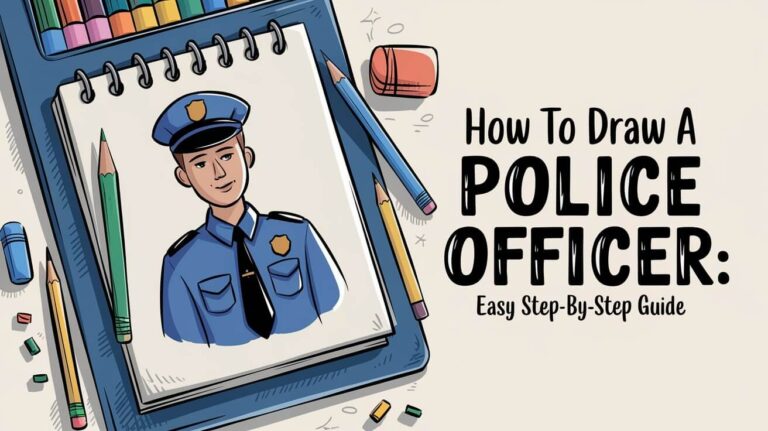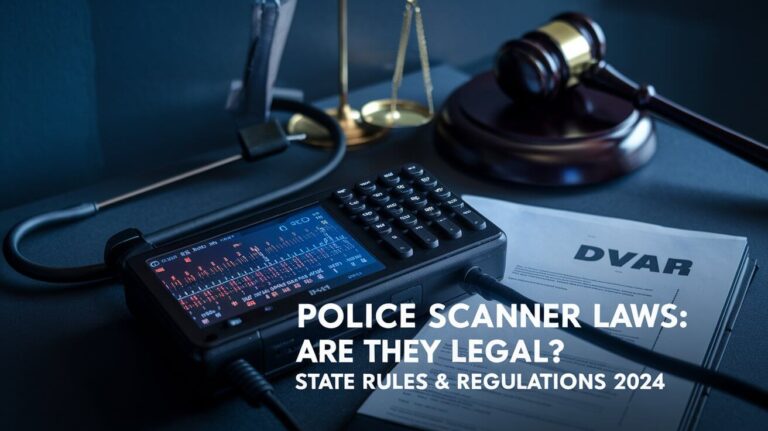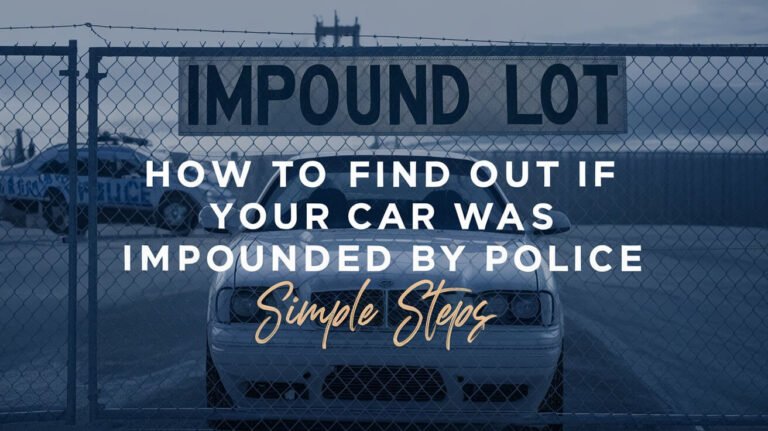How to Sue the Police for Violating Civil Rights: A Comprehensive Guide

If you believe the police have violated your civil rights, you can sue them through a civil lawsuit. This process involves gathering evidence, filing a complaint, and potentially going to trial. While challenging, it’s a crucial tool for holding law enforcement accountable and protecting your constitutional rights.
Civil rights lawsuits against police are complex. They require understanding legal procedures, overcoming potential obstacles, and navigating a system that often protects its own. But with the right approach and resources, it’s possible to seek justice and drive meaningful change.
This guide will walk you through the process of suing the police for civil rights violations. We’ll cover everything from recognizing violations to filing a lawsuit and seeing it through to resolution.
Understanding Civil Rights Violations by Law Enforcement
Before diving into the lawsuit process, it’s crucial to understand what constitutes a civil rights violation by police.
What Constitutes a Civil Rights Violation?
Civil rights are the basic rights and freedoms guaranteed to all individuals by the Constitution and federal laws. When police officers abuse their power or discriminate against individuals, they may be violating these fundamental rights.
Common civil rights violations by police include:
- Excessive use of force
- False arrest or imprisonment
- Racial profiling
- Unlawful searches and seizures
- Denying medical care to detainees
Common Types of Police Misconduct
Police misconduct can take many forms. Some of the most frequent types include:
- Brutality: Using unnecessary or excessive force
- Corruption: Abusing power for personal gain
- Coercion: Forcing confessions or false testimony
- Falsifying evidence: Planting or tampering with evidence
- Sexual misconduct: Engaging in sexual acts while on duty
The Impact of Civil Rights Violations on Individuals and Communities
Civil rights violations by police can have far-reaching consequences. For individuals, they can lead to physical injuries, emotional trauma, and financial hardship. Communities may experience:
- Erosion of trust in law enforcement
- Increased fear and tension
- Reduced cooperation with police
- Long-lasting trauma, especially in minority communities
Understanding these impacts underscores the importance of holding police accountable for civil rights violations.
Recognizing When Your Civil Rights Have Been Violated
Identifying a civil rights violation is the first step in the process of suing the police. Here’s what to look out for:
Key Indicators of Police Misconduct
Watch for these red flags during interactions with law enforcement:
- Use of excessive force
- Arrests without probable cause
- Racial slurs or discriminatory language
- Refusal to provide badge numbers or identify themselves
- Threats or intimidation tactics
Documenting the Incident: Why It’s Crucial
If you believe your rights have been violated, thorough documentation is vital. This evidence can make or break your case. Here’s what to record:
- Date, time, and location of the incident
- Names and badge numbers of officers involved
- Witness contact information
- Photos or videos of injuries or property damage
- Detailed written account of what happened
Immediate Steps to Take After a Civil Rights Violation
- Seek medical attention if needed
- Write down everything you remember about the incident
- Gather contact information from witnesses
- File a complaint with the police department
- Contact a civil rights attorney
Taking these steps promptly can significantly strengthen your case.
The Legal Framework for Suing the Police
Understanding the laws that protect your civil rights is crucial when considering a lawsuit against the police.
Federal Laws Protecting Civil Rights
Several federal laws provide the basis for civil rights lawsuits:
- Section 1983 of the Civil Rights Act of 1871
- Title VI of the Civil Rights Act of 1964
- Americans with Disabilities Act
- Fourth Amendment (protection against unreasonable searches and seizures)
These laws allow individuals to sue government officials, including police officers, for civil rights violations.
State Laws and Local Regulations
In addition to federal laws, many states have their own civil rights statutes. These may provide additional protections or different procedures for filing lawsuits. Check your state’s specific laws regarding police misconduct and civil rights violations.
Statute of Limitations: Time Limits for Filing a Lawsuit
It’s crucial to act quickly if you’re considering a lawsuit. Most civil rights claims have strict time limits, known as statutes of limitations. These vary by state and type of claim, but generally range from 1-3 years. Missing this deadline can bar you from filing a lawsuit, so consult with an attorney as soon as possible.
Preparing to Sue the Police for Civil Rights Violations
Proper preparation is key to a successful lawsuit against the police. Here’s how to get started:
Gathering Evidence to Support Your Case
Strong evidence is the foundation of any civil rights case. Collect:
- Medical records and bills
- Photographs of injuries or property damage
- Video footage from security cameras or bystanders
- Police reports and internal affairs complaints
- Witness statements
The more evidence you have, the stronger your case will be.
Finding the Right Civil Rights Attorney
Choosing the right lawyer can make a huge difference in your case. Look for an attorney who:
- Specializes in civil rights or police misconduct cases
- Has a track record of success in similar cases
- Communicates clearly and keeps you informed
- Offers a free initial consultation
Don’t hesitate to interview multiple attorneys before making your choice.
Understanding the Costs and Potential Outcomes
Civil rights lawsuits can be expensive and time-consuming. Most attorneys work on a contingency fee basis, meaning they only get paid if you win. However, you may still be responsible for court costs and other expenses.
Potential outcomes include:
- Monetary compensation for damages
- Policy changes in the police department
- Disciplinary action against officers involved
Discuss potential outcomes and costs with your attorney before proceeding.
The Process of Filing a Civil Rights Lawsuit Against the Police
Once you’ve decided to sue, here’s what the process typically looks like:
Filing a Formal Complaint with the Police Department
Before filing a lawsuit, you’ll usually need to file a complaint with the police department’s internal affairs division. This step:
- Creates an official record of your allegations
- May lead to an internal investigation
- Is often required before you can file a lawsuit
Keep copies of all complaint documents for your records.
Navigating the Government Claim Process
Many states require you to file a claim with the government before suing a police department. This process:
- Notifies the government of your intent to sue
- Gives them a chance to settle before a lawsuit is filed
- Has strict deadlines, often as short as 6 months
Missing this step can result in your case being dismissed, so follow the process carefully.
Drafting and Filing the Lawsuit
If your complaint and government claim don’t resolve the issue, the next step is filing a lawsuit. Your attorney will:
- Draft a complaint outlining your allegations
- File the complaint in the appropriate court
- Serve the defendants (police officers and department) with the lawsuit
This officially starts the legal process of your civil rights case.
Building a Strong Case Against Law Enforcement
Once your lawsuit is filed, it’s time to build your case. This involves several key steps:
Identifying Liable Parties: Individual Officers vs. Departments
In a civil rights lawsuit, you can sue:
- Individual officers who violated your rights
- The police department for inadequate training or supervision
- The city or county government responsible for the department
Your attorney will help determine which parties to include in your lawsuit.
Overcoming Qualified Immunity Challenges
Qualified immunity is a legal doctrine that protects government officials from lawsuits unless they violated “clearly established” rights. To overcome this defense:
- Show that the officer’s actions were clearly unconstitutional
- Cite similar cases where courts found such actions illegal
- Argue that any reasonable officer would have known the conduct was wrong
This is often one of the biggest hurdles in police misconduct cases.
Proving Damages in Civil Rights Cases
To win your case, you’ll need to prove that you suffered damages. These can include:
- Physical injuries and medical bills
- Emotional distress and mental anguish
- Lost wages or job opportunities
- Property damage
- Violation of constitutional rights
Document all damages thoroughly to strengthen your case.
Alternative Dispute Resolution in Police Misconduct Cases
Not all civil rights cases go to trial. Many are resolved through alternative methods:
Mediation and Settlement Negotiations
Mediation involves a neutral third party helping both sides reach an agreement. Benefits include:
- Faster resolution than a trial
- Lower costs
- More control over the outcome
Many cases settle through direct negotiations between attorneys.
When to Consider Settling vs. Going to Trial
Deciding whether to settle or go to trial depends on factors like:
- Strength of your evidence
- Potential damages
- Likelihood of winning at trial
- Desire for public acknowledgment of wrongdoing
Discuss the pros and cons of settling with your attorney before making a decision.
The Trial Process in Civil Rights Lawsuits Against Police
If your case goes to trial, here’s what to expect:
What to Expect During a Civil Rights Trial
A civil rights trial typically involves:
- Jury selection
- Opening statements
- Presentation of evidence and witness testimony
- Cross-examination of witnesses
- Closing arguments
- Jury deliberation and verdict
Trials can last anywhere from a few days to several weeks.
Presenting Evidence and Witness Testimony
Your attorney will present evidence supporting your case, including:
- Your testimony about what happened
- Witness accounts of the incident
- Expert testimony on police procedures or medical issues
- Physical evidence like photos or videos
The defense will have a chance to cross-examine witnesses and present their own evidence.
The Role of Expert Witnesses in Police Misconduct Cases
Expert witnesses can play a crucial role in civil rights cases. They may:
- Explain proper police procedures
- Analyze use of force incidents
- Testify about the psychological impact of civil rights violations
Their testimony can help jurors understand complex issues in your case.
Potential Outcomes and Remedies in Civil Rights Lawsuits
Civil rights lawsuits can result in various outcomes:
Types of Damages Available in Civil Rights Cases
If you win your case, you may be awarded:
- Compensatory damages for actual losses
- Punitive damages to punish egregious misconduct
- Nominal damages if your rights were violated but you suffered no actual loss
The amount of damages varies widely depending on the specifics of your case.
Injunctive Relief and Policy Changes
In addition to monetary damages, you may seek:
- Court orders requiring changes in police department policies
- Mandated training for officers
- Oversight of the department by independent monitors
These remedies aim to prevent future civil rights violations.
The Appeals Process in Civil Rights Lawsuits
If you lose your case, you may have the option to appeal. The appeals process:
- Reviews the trial for legal errors
- Does not typically involve new evidence
- Can result in a new trial or a change in the verdict
Appeals can take months or even years to resolve.
High-Profile Cases of Successfully Suing the Police
Several notable cases have shaped the landscape of civil rights lawsuits against police:
Landmark Civil Rights Cases Against Law Enforcement
Some important cases include:
- Floyd v. City of New York (2013): Challenged NYPD’s stop-and-frisk policy
- Rodney King v. City of Los Angeles (1994): Addressed police brutality
- Graham v. Connor (1989): Established standards for use of force
These cases have set important precedents for future lawsuits.
Lessons Learned from Notable Police Misconduct Lawsuits
Key takeaways from high-profile cases include:
- The power of video evidence in proving misconduct
- The importance of systemic reform, not just individual punishment
- The role of public pressure in driving change
These lessons can inform strategies for future civil rights lawsuits.
The Broader Impact of Civil Rights Lawsuits Against Police
Civil rights lawsuits do more than compensate individuals:
Driving Systemic Change in Law Enforcement Practices
Successful lawsuits can lead to:
- Improved training for officers
- Implementation of body cameras and other accountability measures
- Changes in use-of-force policies
- Increased community oversight of police departments
These changes can help prevent future civil rights violations.
Balancing Public Safety and Civil Liberties
Civil rights lawsuits highlight the ongoing challenge of balancing effective law enforcement with protecting individual rights. They encourage discussions about:
- The proper role of police in society
- How to ensure accountability while maintaining public safety
- The importance of community trust in effective policing
These conversations can lead to more just and effective law enforcement practices.
Resources for Victims of Police Civil Rights Violations
If you’re considering suing the police for civil rights violations, several resources can help:
Legal Aid Organizations and Pro Bono Services
Many organizations offer free or low-cost legal assistance:
- ACLU (American Civil Liberties Union)
- NAACP Legal Defense and Educational Fund
- Local legal aid societies
These groups can provide advice or even represent you in court.
Support Groups and Advocacy Networks
Connecting with others who have experienced similar situations can provide emotional support and practical advice. Look for:
- Local civil rights organizations
- Online forums for victims of police misconduct
- Community advocacy groups
These networks can offer valuable support throughout the legal process.
Educational Resources on Civil Rights and Police Accountability
Knowledge is power. Educate yourself about your rights:
- Know Your Rights guides from civil liberties organizations
- Police accountability workshops in your community
- Online courses on civil rights law
The more you know, the better equipped you’ll be to protect your rights.
Conclusion: Empowering Yourself to Protect Your Civil Rights
Suing the police for civil rights violations is a challenging but important process. It requires courage, persistence, and a solid understanding of your rights and legal options. While the path may be difficult, it’s a powerful tool for holding law enforcement accountable and protecting the civil liberties of all citizens.
Remember, every successful civil rights lawsuit not only provides justice for the individual but also contributes to broader systemic change. By standing up for your rights, you play a crucial role in shaping a more just and equitable society.
If you believe your civil rights have been violated by the police, don’t stay silent. Seek help, document everything, and consider taking legal action. Your voice matters, and your rights are worth fighting for.






